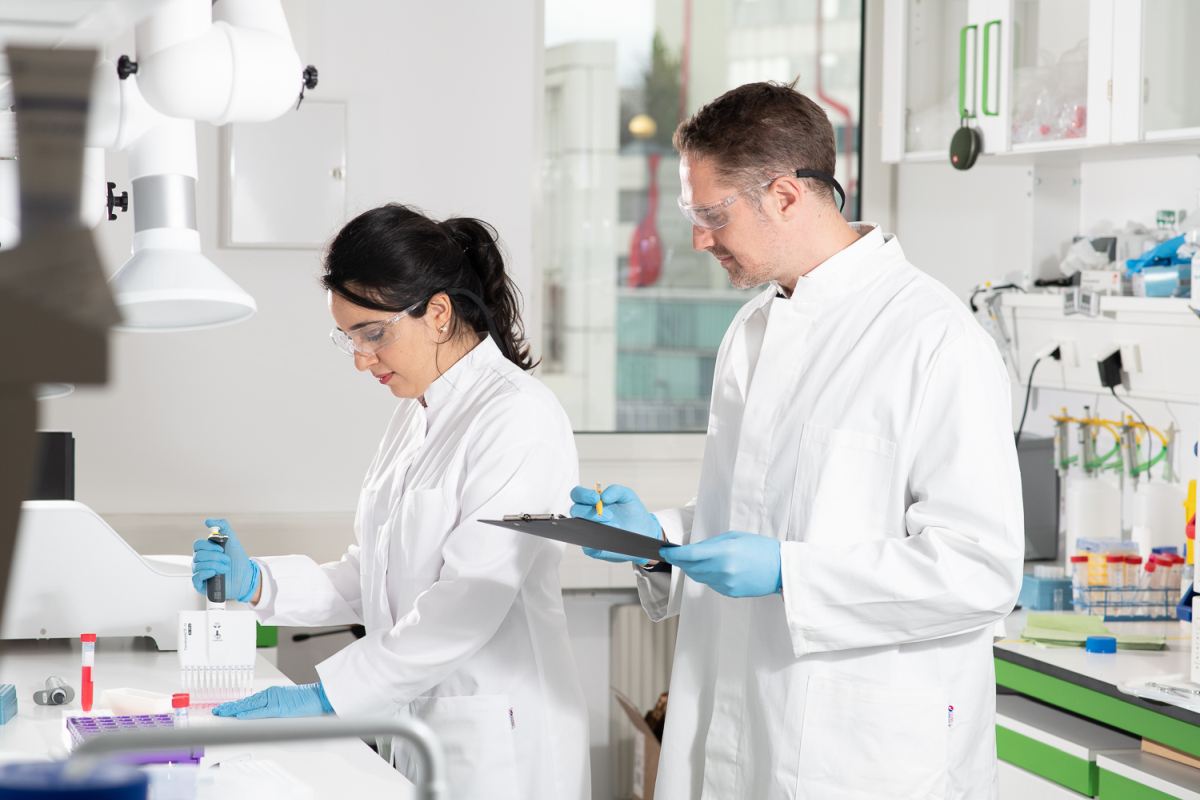Cutanos

The immune system protects our body against bacteria, viruses and other external threats to our health. Dendritic cells (DCs) play a central role by recognizing such pathogens, processing them and training other immune cells to act against them. At the same time, DCs are also responsible for tolerating the body’s own structures (autoantigens). This complex interaction is achieved by an „orchestra“ of different types of DCs. Cutanos aims to use these mechanisms to develop both vaccines and therapies against autoimmune diseases and allergies.
xista team

The last decade has seen unprecedented advances in understanding and harnessing the capabilities of the human immune system. Novel vaccines and immunotherapies against cancer and auto-immune diseases have been developed and a broad range of therapeutic projects are currently being pursued.
Delivery of antigen to specialized immune cells, called dendritic cells (DCs), is a promising approach. However, there are different subsets of DCs which can process the delivered antigen in different, sometimes adverse ways. This unspecific uptake can cause unwanted side effects, unnecessary off-target distribution and, as a consequence, reduced efficacy. Cutanos develops a highly modular antigen delivery platform that only targets one specific type of DCs - Langerhans cells. This way, drug load can be reduced, efficacy increased and antigen delivery can be controlled in unprecedented ways. Additionally, since Langerhans cells reside in the upper layers of the skin, antigens can be delivered with minimal-invasive, “needle free” techniques.
The technology has initially been developed in Christoph Rademachers lab at the Max Planck Institute of Colloids and Interfaces and the University of Vienna. Robert Wawrzinek, a key contributor to this technology, has moved from academia to start and lead this venture.
We decided to invest as this represents an enabling platform technology in a very promising therapeutic field, with applications in anti- as well as tolerogenic fields. We can contribute to the success, for instance by arranging access to pre-clinical facilities, providing advice on IP and licensing, or tapping into our network to provide scientific advisors – in this case we are very glad that Christian Mandl, the Chairman of the Scientific Advisory Board of IVI (International Vaccine Institute) agreed to join the board.